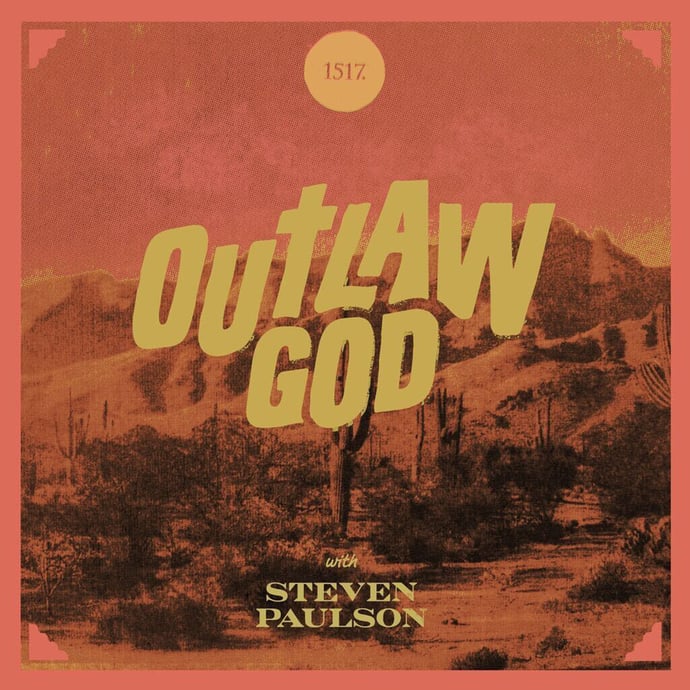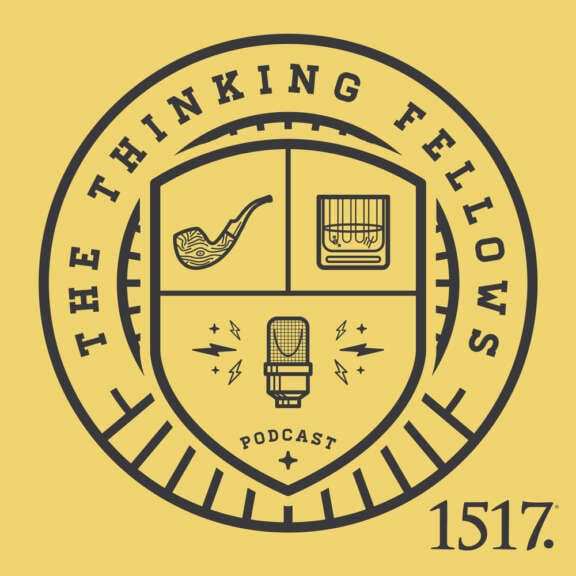Craig and Troy invite special guest Pastor Mark J. Renner to discuss his recent book Curious Cases: A Series of Short Pastoral Case Studies.
Podcasts
Each 1517 Podcast is dedicated to delivering Christ-centered content through weekly, monthly, and seasonal audio platforms. Listen online or on your favorite podcasting app.
Author
- All Authors
- Aaron Zimmerman
- Adam Francisco
- Amy Mantravadi
- Blake Flattley
- Bob Hiller
- Bradley Gray
- Brian W. Thomas
- Bror Erickson
- Bruce Hillman
- Caleb Keith
- Chad Bird
- Chris Rosebrough
- Christopher Gillespie
- Cindy Koch
- Craig Donofrio
- Dan van Voorhis
- Daniel Deen
- Daniel Emery Price
- Darrin Sheek
- David Andersen
- David Rufner
- David Zahl
- Debi Winrich
- Delwyn Campbell
- Donavon Riley
- Doug Klembara
- Edward Killian
- Elyse Fitzpatrick
- Erick Sorensen
- Flame
- Grant Klembara
- Gretchen Ronnevik
- Haroldo Camacho
- Jacob Smith
- Jared C. Wilson
- Jeff Mallinson
- Jeffrey Pulse
- Jessica Thompson
- Jim Nestingen
- Joel Fitzpatrick
- Joel Hess
- John Andrew Schreiner
- John Bombaro
- John T. Pless
- John W. Hoyum
- John Warwick Montgomery
- Katie Koplin
- Kelsi Klembara
- Ken Sundet Jones
- Magnus Persson
- Matt Popovits
- Michael Berg
- Michael Horton
- Nick Lannon
- Paul Koch
- Peter Nafzger
- Philip Bartelt
- Raleigh Sadler
- RJ Grunewald
- Robert Kolb
- Rod Rosenbladt
- Ron Hodel
- Sam Leanza Ortiz
- Sarah Condon
- Sarah Crowder
- Scott Davis
- Scott Keith
- Steven Paulson
- Tanner Olson
- Troy Neujahr
- Uwe Siemon-Netto
- Wade Johnston
- William Cwirla
-
The Atlantic published a large article called "Anti-Social Century" which spurred on a conversation with Gretchen and Katie on why this generation of people is anti-social, and what to do about it.
-
Erasmus accused Luther of being outside of the church and having a novel understanding of Scripture.
-
In what way is the Church a remnant? Luther uses God's preservation of a remnant of faithful teachers and preachers throughout scripture and the Church against Erasmus and his argument that Luther stands alone.
-
In episode THREE HUNDRED AND TWELVE, Mike, Jason, and Wade discuss the Protestant fear of formalism, or ritualism?
-
In episode THREE HUNDRED AND ELEVEN, Jason and Wade build on the previous episode’s discussion of monasticism by focusing on two aspects of the monastic life from which we can draw practical lessons: routine and contemplation.
-
In this episode of the Thinking Fellows podcast, the Fellows answer, "Did Martin Luther invent a new religion?"
-
Who Made Who? Today, we read an essay by Rev. Dr. John Kleinig about what makes a theologian. Dr. Kleinig explains Martin Luther’s threefold description of how the master of theology, the Holy Spirit, makes one a theologian through contemplative prayer, meditating on Scripture within the communion of saints, and being translated into the kingdom of heaven by God’s Word—all this and much more on this week’s episode of the podcast.
-
For Valentine's Day, Gretchen Ronnevik and Katie Koplin talk about the trend of writing marriage vows, and some of the pitfalls of such a trend.
-
In episode THREE HUNDRED AND NINE, using a chapter from Mark Mattes' Law & Gospel in Action, Mike, Jason, and Wade discuss whether there is such a thing as a Lutheran ethic and, if so, what it looks like (and what it doesn't)?
-
Many times, Christian homes view sin as a problem "out there" and not a problem "in here."
-
Luther explains that the church embraced free will not because of Scripture but just as the Trojans embraced the Greek's wooden horse.





